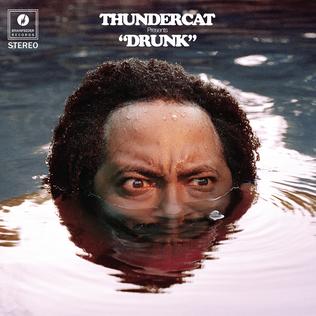Real Estate
In Mind
Domino Records 2017
Listen on Spotify
In listening closely to the run of three successive, excellent Real Estate albums, the term becomes less of a name and more of an adjective. Real Estate is their sound, and you know it when you hear it. Between its self-titled debut, endlessly enjoyable follow up Days, and beautiful, apex-reaching Atlas, mid-tempo rhythms and whimsically bouncy guitar became ingrained within their special brand of indie-pop. The music feels effortless, even though it isn’t.
The remarkable consistency in its sunny, melodic music owes much to a shared background of demo tapes and backyard jamming in their late teens. Progress and growth have been easy to chart, as the albums have thematically played out like many in their late twenties can relate to. First, the rejection of adulthood and its responsibilities, over a backdrop of breezy tunes that swirled with reverb. And second, the “oh shit, time has passed, how did I get here?” of stark reality setting in. The latter was embodied within 2014’s Atlas, which marked with clarity the maturation of Real Estate; that its music could truly be substantive and emotional, without abandoning the carefree core that soundtracked countless road trips, beach excursions, and drives down the coast for its audience.
With In Mind, the band finds itself charting new territory, sort of. The forced narrative that’s followed the release of their fourth album has been the departure of lead guitarist Matt Mondanile, who left the group to focus on his side project, Ducktails. However essential his jangly riffs may have been in tandem with Martin Courtney’s even vocals, to focus heavily on the lineup change would do a disservice to the continuity of sound that has persisted for nearly a decade. To put it in their own terms, “the sun’s still burning”, and you can be equally assured that as long as they exist, so will the refinement of their delicate soundscapes. As longtime friend and frequent contributor Julian Lynch steps in, the result is both a seamless transition, and a resounding confirmation of an idea that Courtney has preached for years. Real Estate music is a drink best sipped slowly and carefully; the close listener is rewarded by the beauty in its subtleties.
If there’s any critique that has persisted over the years, it’s been that maybe the sound is too consistent, to the point of being redundant. On this record, Courtney and his bandmates don’t just silently disapprove of that assessment, but make a serious effort to prove it wrong. Aided in production by Cole M. Greif-Neill, whose work with Beck, Ariel Pink, and Julia Holter has been widely lauded, they showcase an effort to diversify their sound in ways unheard in the past three recordings. After Days muddied surf-rock sound gave way to almost untouched, crystal clear production on its follow up, In Mind settles somewhere in between; added layers of synthesizer, introductions of drum kits, and varied guitar effects make the sound feel fresh and new.
These types of sonic experiments, the ones that evolve smoothly and without sacrificing the emotive beauty of past successes, are made possible by accepting uncertainty, and ultimately, reaching the contentment they were searching for three years ago. The feeling of empowerment is tangible, in a Real Estate way, and the unrelenting honesty permeates the entire record. Forming this connection opens the door to the finer details, which range from unassumingly profound to spectacularly mundane. Somehow, parroted proverbs seem just as intriguing as the “black and yellow finches” seen through the window.
Littered throughout the album’s eleven tracks are clues of newfound comfort pervading each song’s composition. Murmurings like “back where I belong” and “lately I’m inspired” spread across “Save the Song” are obvious, while side two’s “Same Sun” finds Courtney happily residing in the present (“When does one thing ever end and the next begin?”). “Stained Glass” pays tribute, as many Real Estate songs do, to the group’s suburban New Jersey roots. The guitar licks move together with Alex Bleeker’s bass, and the vivid imagery of scenic landscapes evoke daydreams of bliss-filled summer days.
On “Two Arrows”, the album’s longest track, the sparse percussion slows to a crawling tempo. Lynch’s simple, effective playing moves to the forefront, giving space for Courtney’s contemplations. “I’ll meet you in the morning/ beyond that I’ve got no plans,” he sings indifferently, put at ease by the freedom (or absence) of time. As the song is carried forward by the high “ping” of the guitar melody, its final words (“Although I know we go, I know not where”) unleash an outro of fuzzy guitar. Thought-provoking, and evidence of the Courtney’s personal strides overcoming the stresses and anxieties of being both a touring musician and father of two, the song is a microcosm of what makes the record as a whole stand out.
In Mind isn’t an affirmation of the band’s talent nor a fulfillment of their potential- that’s what Atlas was for. It is, however, an admirable demonstration that they can navigate changes in their lives and in their lineup, all while finding new ways to diversify and experiment with their sound. More importantly, the album breathes fresh air into the philosophy of all that is finite. Real Estate music, like anything in life, will someday end- that’s as certain as the sunrise that Courtney references throughout the record. What better a reason to celebrate something while we have it? To immerse ourselves fully into an art form that provides for us more than we could ever repay. To let go of that which is inevitable and bring ourselves peace of mind. Real Estate have come to understand this better than most, and, oddly, they’ve never sounded more timeless. In the end, it’s a welcomed reminder.

